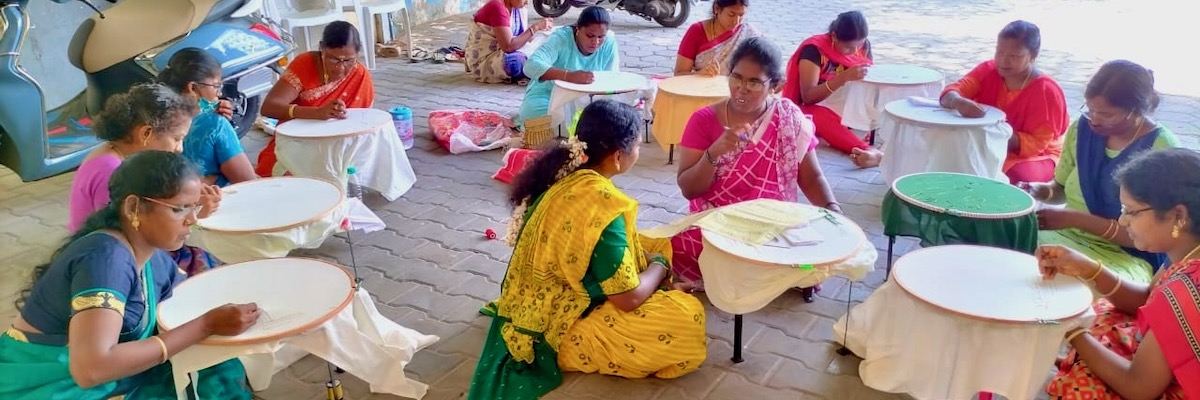
DMI works in 908 Villages in three states Tamil Nadu, Andhra Pradesh, and Bihar implementing programs that address poverty and women’s equality. While Tamil Nadu is the second richest state in India and the most economically developed, over 30% of its population lives in the slums. Andhra Predesh and Bihar are two of the poorest states in the country with over half of its populations living below the poverty line with the lowest literacy level, and the highest rate of infant mortality and child malnutrition.
WOMEN’S EMPOWERMENT
DMI’s women’s empowerment programs are designed to alleviate poverty and hunger. Organized in self-help groups, women can create and support one another in a savings and loan program to improve their household income through income generating activities. In addition to organizing vocational training for women and young girls, women members are trained in business development to scale their small businesses. The groups also provide a platform where women can collectively solve community problems, promote personal hygiene and health and wellness, and increase their civic engagement by encouraging participation in local government.
SUSTAINABLE FARMING
DMI’s food security program teaches smallholder farmers sustainable farming practices so that they can increase crop production. In addition to regular training workshops, DMI staff provide farming tools and seeds to farmers in an effort to eliminate hunger and starvation, and also provide the farmer with the opportunity to create a livelihood.
CHILD DEVELOPMENT
DMI’s child development programs have two prongs: encourage school attendance and improve academic success, and promote civic engagement.
Oftentimes a barrier to education, especially for those in poor, rural villages, is that families cannot afford to purchase basic school supplies for their children. DMI identifies vulnerable children and provides notebooks, stationeries, school bags and sandals to continue and complete their schooling.
Civic engagement is also a fundamental skill that DMI instills in young children. Young students are organized in parliaments to develop their leadership skills and improve their decision-making skills so that they can use their voices to advocate for themselves and safeguard their rights. Children learn parliamentary procedures, and gain an understanding of governmental roles.
HUMANITARIAN ASSISTANCE & COMMUNITY-BASED HEALTH DM responds with humanitarian assistance to save lives and alleviate suffering by providing food, clothing, counseling services and medical care when global health issues occur and during natural disasters.
DMI believes that basic healthcare for all is a human right. Staff promotes community health by organizing community awareness and education programs to address both contagious disease and chronic healthcare issues particularly for those who live in rural villages and may not have ready access to health services.
Dedicated to enhancing the lives of those with disabilities, by working with family members, organizations and local communities to connect them to government programs and job opportunities.
